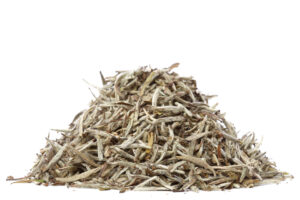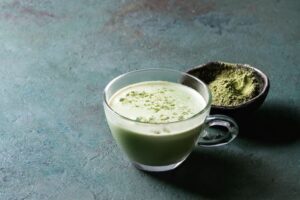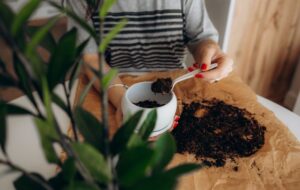Today we’re going to be discussing echinacea tea. Eventually, we want to cover every single type of tea that exists but it’s going to take a long time… But you’re not in a hurry, are you?
Good, neither are we.
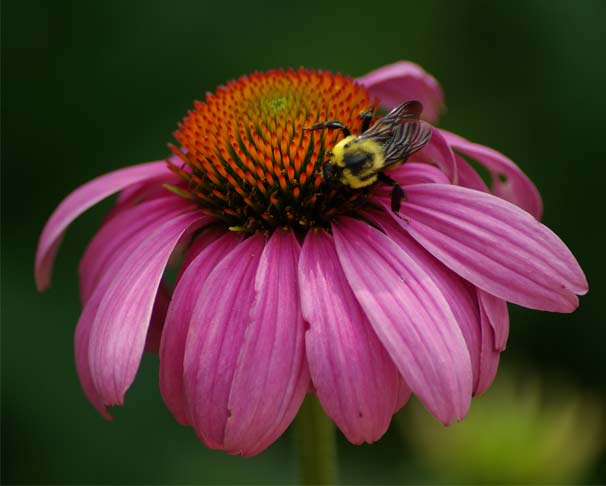
Here are some of the types of tea that we’ve looked at previously:
- Tea made with turmeric
- Delicious sweet tea on a hot day
- Jasmine tea for a floral twist
- And of course, a staple in every tea lover’s collection: Green tea.
When it comes to echinacea, we’ve got a lot to cover. First, let’s go over some of the (alleged) health benefits. Talking about tea and health is always a bit of a controversial subject, but we’ll dig deeper into that in a few moments.
Here Are Some of The Echinacea Tea Health Benefits
As we often say, the main reason to a enjoy a tea isn’t typically for the health benefits, because these types of things can still be controversial. You should drink tea because you enjoy it, first and foremost, and any potential health benefits are just a plus. In other words, if you are having health issues or are worried about certain aspects of your health, it is a much more product idea to go and speak to your doctor and seek help, rather than relying on tea to fix your health.
There are some undeniable health benefits to all sorts of teas, mainly things like stress reduction and the benefits that come from that. In any case, here are some of the health benefits of Echinacea tea that have been suggested by various studies. We’re not endorsing or refuting any of these studies, we’re simply passing them along so that you can read them and make up your own mind. Once again, if you’re suffering from health issues and you haven’t seen your doctor yet, that is the absolute first step. With that out of the way, here are some of the ailments that this drink has been said to help with.
What does echinacea help with?
The main thing that people think of when it comes to supplementing with this plant is to help with the common cold. So, does echinacea work for colds? Does it help if you’re trying to overcome the common cold? There are a lot of cold remedies out there, some are availabie in stores and others are made using common household items. Some cold remedies have been passed down for generations, whereas others are just starting to hit the market.
Via Web MD: “Some people take echinacea at the first sign of a cold, hoping they will be able to keep the cold from developing. Other people take echinacea after cold symptoms have started, hoping they can make symptoms less severe.”
Echinacea angustifolia for anxiety
We think that tea can be very helpful for anxiety, that’s just a personal opinion – not a medical one. The relaxation and mildfulness benefits of tea can help lput your mind in a better place. That doesn’t mean it will work for everyone, and if you’re suffering from sever anxiety then we don’t want to tell you to just drink a cup of tea and get over it because that would be daft and irresponsible of us. However, if you occasionally suffer from mild anxiety, perhaps a soothing cup of tea and a few quiet moments to yourself can help to smooth things over, at least momentarily? Sometimes a relaxing and calm moment is all it takes to set the pace for the rest of the day.
Now, that’s just talking about tea in general, any type you’d like. But what about Echinacea angustifolia in particular? It’s often recommend in naturopathic medicine, in particular by Dr. Decker Weiss, ND.
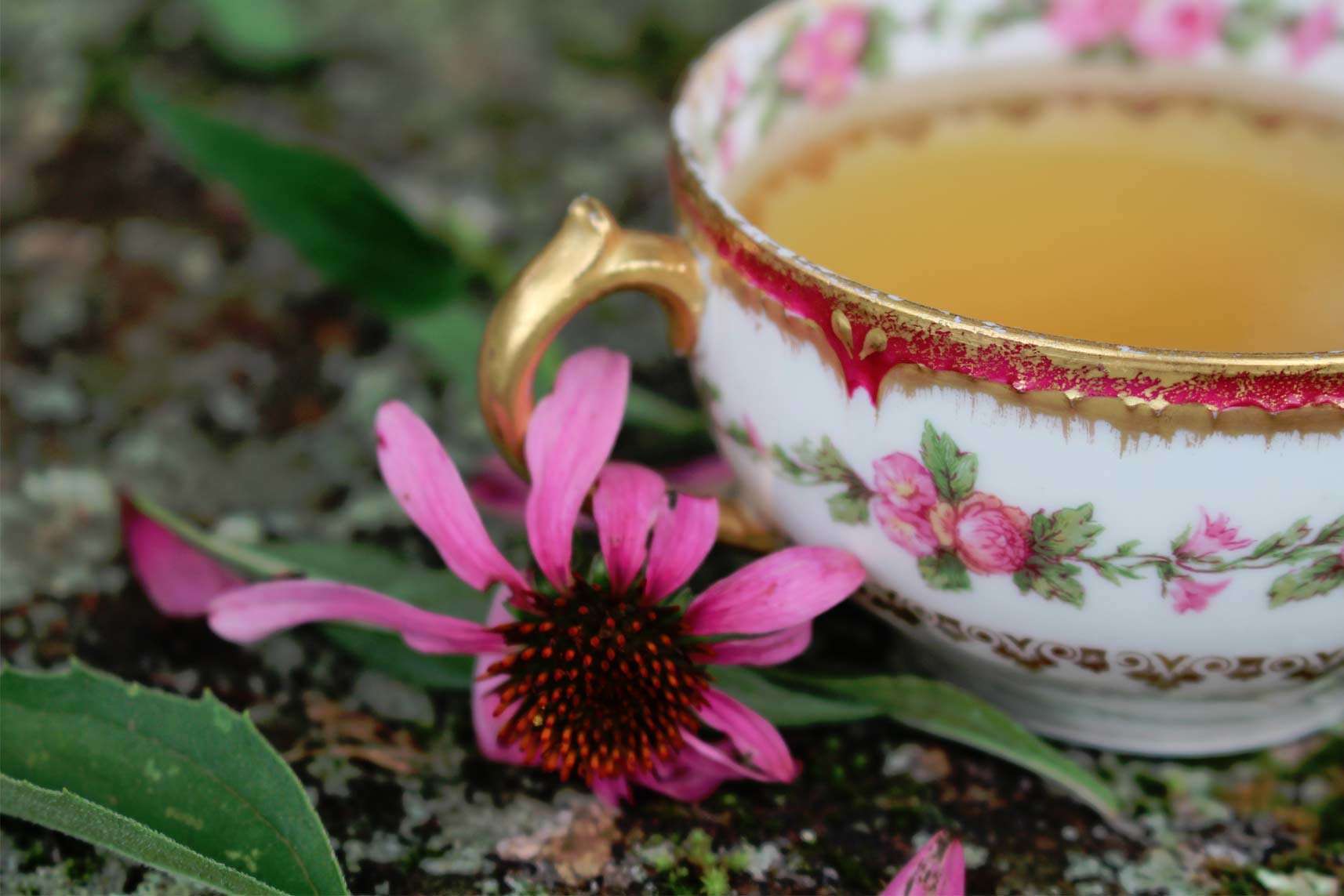
How much echinacea is safe to take?
A lot of people are taking echinacea daily as a preventative measure, but some people only take it when they either notice the first signs of a cold starting up, or during the cold. The only advice we can earnestly give you about dosages and such is to follow the directions on the bottle if you’re supplementing it with vitamins, or to talk to a professional. It’s generally regarded as safe, however some people will experience some G.I. discomfort, especially if they’re consuming it very frequently.
We’ll leave the answer to this question up to a Doctor, though:
Via Dr. Sears: “Studies on the safety and efficacy of echinacea in adults suggest the following dosage:
- 300 milligrams three time a day for a total of 900 milligrams a day.
- The dosage in children has not been studied as much, but a sensible amount would be one- half the adult dose for children ages six to thirteen, and one-quarter the adult dose for children under six.”
Echinacea supplement side effects
There are numerous side effects that one might experience, here is a list via the Mayo Clinic. Granted, these aren’t very common.
It’s generally considered safe when taken orally or applied to the skin, but pregnant women or people with heart disease should exercise caution although echinacea tea during pregnancy is considered to be safe – it hasn’t been studied extensively enough and many sources are cautious to give it the full, 100% green light. Raspberry leaf tea is a popular choice during pregnancy, as an alternative, to help ease labor.
It may also cause “anxiety and nervousness, bad taste, bronchitis, constipation, diarrhea, dizziness, dry throat, dry mouth, fatigue, headache, heartburn, joint pain, kidney failure, mild drowsiness, mild nausea, mouth irritation, numb tongue, pemphigus vulgaris (autoimmune disease causing blistering, sore skin), sleep problems, sperm motility, stomach pain, upset stomach, and vomiting.”
Here’s a much bigger list of cautions and potential side effects on the Mayo Clinic site, so we’ll direct you there for the complete warnings.
Before you become terrified from that long list, just remember this is a natural supplement that comes from a flower, and those long lists of cautions are common for just about anything. It is widely considered to be very safe to take, has been taken by Native Americans for hundreds of years, and may have many benefits, too.
How To Make Echinacea Tea
You can get pre-made mixes at many tea stores and from an assortment of brands, or you can mix up your own. You can also use loose leaf tea, either with an infuser or by filling up an empty tea bag.
Our Favorite Echinacea Tea Recipe
This recipe comes via our friends over at Living The Green. They go all out, starting by growing the plants. There’s a certain sense of satisfaction that comes from doing this all from scratch, but you don’t necessarily have to. Feel free to pick up the dried and processed ingredients if you don’t want to wait for a plant to grow, or if you don’t want to dry and process it yourself. We won’t judge!
- 1 part echinacea parts, leaves, flowers, roots
- 1/4 part lemon grass
- 1/4 part spearmint leaves (or to taste)
- Stevia leaves to taste
Quite simple, hey?
Once you’ve got your mixture made, it’s just a matter of steeping it in some hot water. If you aren’t a huge fan of lemon grass, you can substitute some lemon juice (Freshly squeezed, ideally!) If you don’t want lemon at all, or you don’t want the speakmint taste, that’s fine. Just experiment! The great thing about tea is that it can be whatever you want it to be. Use recipes as guidelines, but that’s just a starting point. It doesn’t have to be the be-all-end-all.
Where to buy echinacea tea?
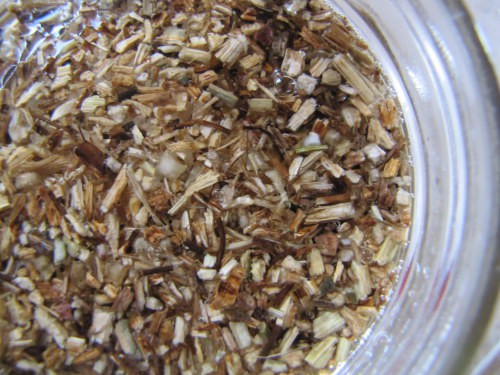
You can find it in many places, but especially in health food stores and stores that specialize in natural products. You can find the plants at garden stores and greenhouses, and you can find the supplements in pill form at just about any pharmacy over the counter.
Whether you choose to enjoy this as a tea, or take it as a supplement, remember that some of the biggest factors in a health life are exercise, drinking lots of water, eating great foods, and getting enough sleep.
Supplements, teas, elixirs, tinctures… they can all improve an already-healthy lifestyle in any number of ways, but if you aren’t taking care of the basics then they really aren’t going to be some magical solution for you.
The best advice we can give you is to have all of your bases covered before looking to further optimize things. If you eat greasy junk food all day, and you only sleep a few hours a night, and you mostly drink coffee and soda… you probabally won’t feel much of a difference by drinking healthy teas or taking echinacea. However, if you’re already doing the basics, you’re much more likely to notice positive benefits from further improvements. That’s just a matter of opinion and common sense…
Good luck, and happy steeping!


